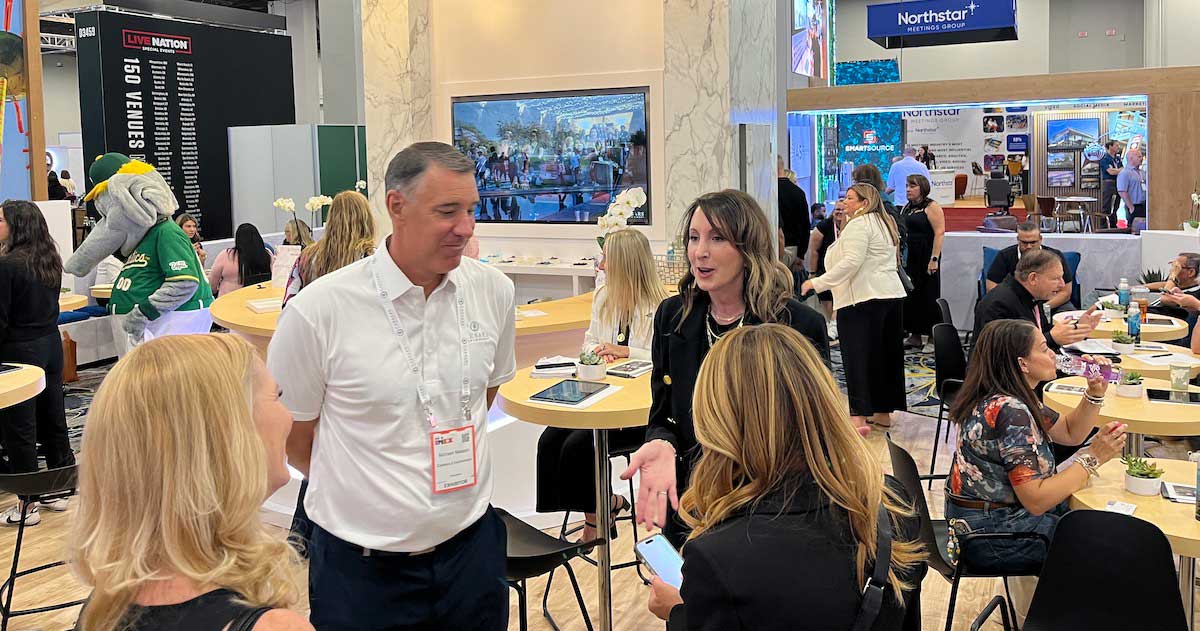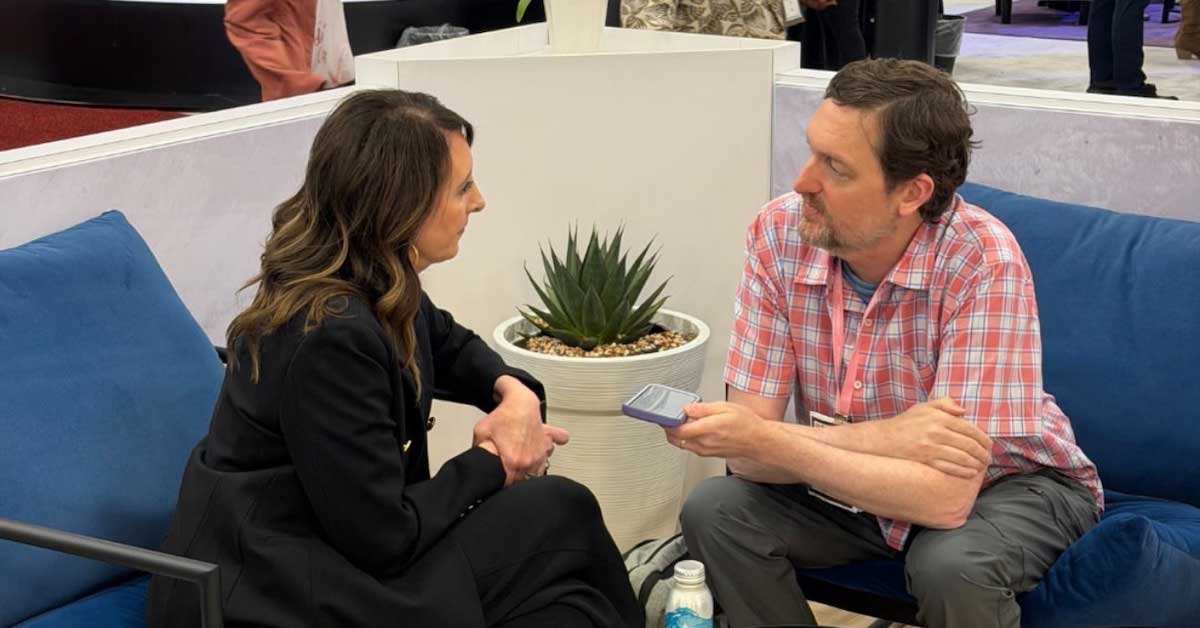Caesars Entertainment and Lisa Vanderpump are teaming up to transform The Cromwell, a boutique hotel on the Las Vegas Strip, into The Vanderpump Hotel by early 2026. It’s the TV star/entrepreneur’s first hotel, though she has several successful partnerships with Caesars Entertainment, including the Vanderpump Cocktail Garden at Caesars Palace. Learn more about the new project.
How have meetings and events evolved in recent years?
I don’t think it’s changed at all. It’s not that meetings and events haven’t evolved because they clearly have, but I think what people are trying to accomplish hasn’t evolved at all. It is very specific to each individual customer. It could be increasing membership in the organization. It could be launching a product. It could be training on how to sell a product or distribute a product. It could be some type of annual kickoff meeting to get ready for the year. Those are the types of things that people are trying to accomplish. I think one of the mistakes that you can really make in this business is starting to think that your AV or your food and beverage or your hotel room really take precedence when the thing that takes the most precedence is what that customer is trying to accomplish. If you can help them deliver on that, then you’ll be an indispensable partner. If you’re just talking about your hotel rooms and your AV and your food and beverage and not really understanding what the customer’s trying to do, you’ll never be an indispensable partner.
We have so many generations in the meeting and industry right now. Can you share some thoughts on bringing them together?
We believe very strongly in situational everything. I think pigeonholing people into these roles, these definitions that we kind of create and come up with is probably a mistake. The answer is to try to understand people and communicate with them in a way that is most effective for them. That’s the job of a leader, right? And it’s not to say everybody in my organization’s going to capitulate to me and communicate the way I communicate. It’s about me trying to understand who they are and communicating to them in a way that’s meaningful to them.
I would also say that we really try to focus on the similarities, which are way more plentiful than the differences. We have to put ourselves back in our early 20s and remember what were we like. That’s where the similarities become really clear. And you say, well, yes, I’m different at 55 than I was at 25, but Mike at 25 was almost identical to a current 25-year-old. We want the same things, we think the same way, we have the same view of timeliness and how quickly we should move forward, get promoted, etc. The similarities are way more plentiful than the differences.
Let’s discuss the wow factor at events. In your mind, how do we achieve it and why is it important?
The wow factor means different things to different people. It’s about that one thing that people talk about when they get home. When somebody goes home and they sit with their spouse or their kids or their significant other, whomever, and that person says, “What was the conference like?” that first thing that comes to mind has to be something that’s special to that person who attended and to that organization. It means a lot of different things to different people. It could mean their entertainment, it could mean their general session speaker, it could mean the gala dinner food and beverage or the costumes that people wore.
For me, when I go home, it’s going to be about how we had great appointments or we had great customers or our booth looks fantastic. People can’t forget that those things are part of the wow factor. It’s not just about having Bon Jovi at a closing gala. It’s also about the logistics and the ease of it and the appointments and the level of sophistication around it. Let’s talk to people. Let’s understand what they’re trying to achieve and let’s deliver that.
Can you share your thoughts on the impact of AI on the meeting and event industry up to this point?
With AI, particularly video, understanding what’s true and what’s not true is going to get progressively harder. Edgar Allan Poe said, “Believe nothing you hear and only half that you see.” So it’s always been this way, but in a world where you can probably get a video of me saying something that I’m not actually saying and have it look really authentic, being face to face is going to get even more important.
AI shortens the time period from being interested in something to having a high level of understanding about it. It allows us now to really have an elegant way to synthesize information. There’s this company I was looking at the other day that focuses on computer coding. AI is allowing people to take away 80% of the coding that gets done. So what may have taken three months now happens in two days. But it still requires a lot of human intervention to get from 80% to 100%. I don’t know if that’s where AI ends up or if it continues to push the boundary, but man, it has made a lot of impact in that first 80%.






